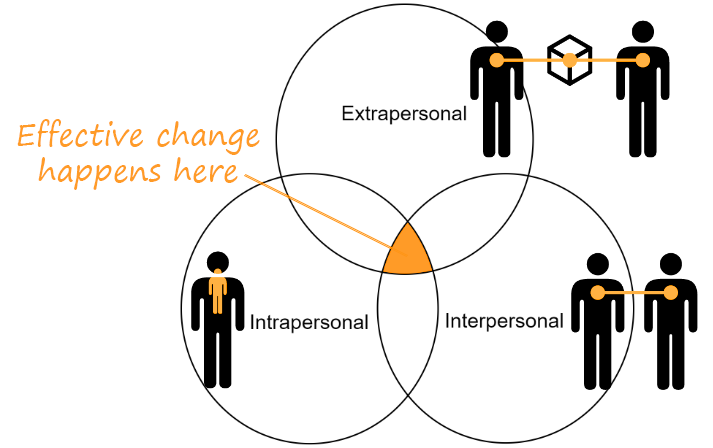
All problems are people problems. Effective problem-solving must consider the inevitable complex web of human factors. While it may be tempting to focus on the surface-level symptomatic issues, responses that fail to consider the human factors are more likely to fall short.
Intrapersonal Factors: These are the personal psychological aspects within individuals, such as skills, experience, worldview, preferences, fears, resilience, agency, and motivation. Understanding these factors helps us identify how people perceive and react to a problem, as well as their potential role in contributing to or resolving the issue. Understanding these factors can also help us operate more mindfully and consciously. The awareness of our intrapersonal factors is the core of a reflective growth-oriented practice.
Interpersonal Factors: This dimension encompasses the social dynamics between people, including communications, collaboration, competition, and relationships. Understanding these factors allows us to see how people interact with one another and how those interactions may influence the problem-solving work at hand. The interpersonal factors help us gather information about the problem, generate hope, and engage buy-in from others.
Extrapersonal Factors: The extrapersonal environment comprises the external, broader context in which all actors relevant to the problem operate. This includes the physical environment, interfaces, and touchpoints with services and systems, as well as other individuals who may be indirectly affected by the problem. By considering these factors, we gain a comprehensive understanding of the issue and its potential impact